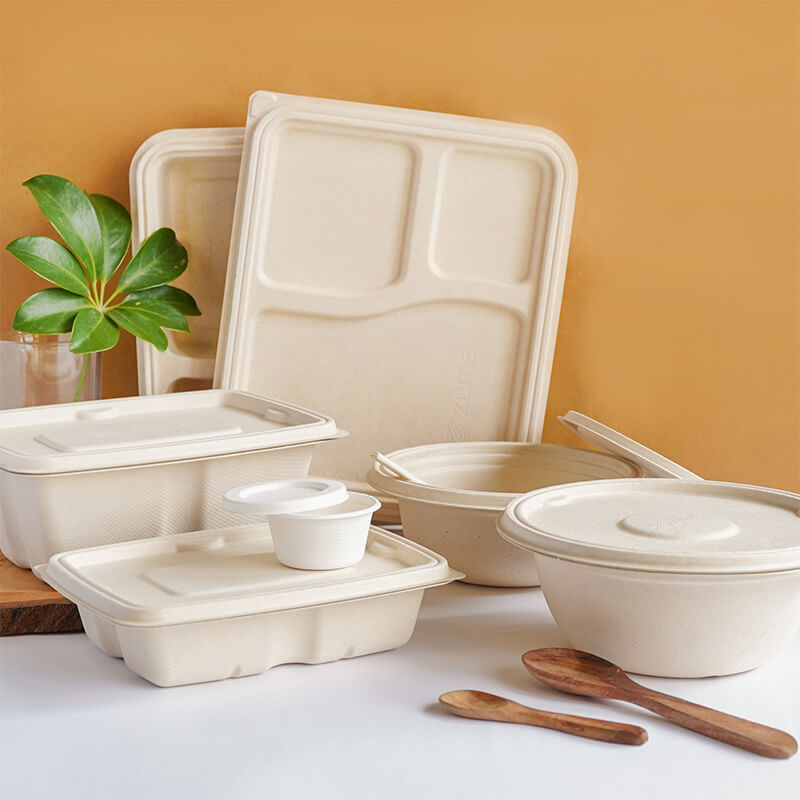In our quest for sustainability, every choice we make today shapes the world of tomorrow. One of the pivotal areas where individuals and businesses alike can make a profound impact is in the adoption of compostable takeaway packaging. This simple shift represents a significant stride towards reducing our environmental footprint and fostering a healthier planet for future generations. Traditional takeaway packaging, often made from plastics and Styrofoam, poses a severe threat to our environment. These materials take centuries to decompose, polluting our oceans, harming wildlife, and contributing to the global plastic crisis. In contrast, compostable packaging offers a sustainable alternative that breaks down naturally into non-toxic components, enriching the soil rather than harming it. The benefits of compostable packaging extend beyond environmental stewardship. Businesses embracing these materials often find that they resonate deeply with environmentally conscious consumers, enhancing brand reputation and loyalty. Moreover, as governments worldwide enact stricter regulations on single-use plastics, adopting compostable alternatives ensures compliance while demonstrating corporate responsibility.
From cafes and restaurants to large-scale events and corporations, the shift to compostable packaging is gaining momentum. Manufacturers are innovating to produce packaging that meets stringent performance standards while being environmentally benign. These materials are not only compostable but also sturdy, heat-resistant, and suitable for a wide range of culinary uses, making them a versatile choice for foodservice establishments. Education and awareness play a crucial role in accelerating the adoption of compostable packaging. By informing consumers about the benefits and proper disposal methods of compostable materials, we empower them to make informed choices. Local governments and organizations can support this transition through incentives and infrastructure investments that facilitate composting facilities and collection programs. While compostable packaging offers a promising solution, challenges remain. Proper waste management infrastructure is essential to ensure that compostable items reach facilities where they can break down efficiently. Businesses must also navigate the complexities of sourcing reliable suppliers and educating staff on the proper handling of compostable materials.
 Collaboration across industries and sectors is key to overcoming these challenges. By fostering partnerships between manufacturers, businesses, waste management companies, and policymakers, we can create a cohesive framework that supports the widespread adoption of compostable packaging. This collaborative approach encourages innovation, drives down costs, and expands access to composting facilities, paving the way for a more sustainable future. Individual actions compound to create collective impact. As consumers, we can advocate for compostable packaging by supporting businesses that prioritize sustainability and advocating for policy changes that promote environmentally friendly practices. By making conscious choices, we drive demand for compostable alternatives, catalyzing market transformation towards a circular economy. The transition to compostable takeaway packaging is not just a trend but a necessary evolution towards a greener, more sustainable future. It represents a commitment to preserving our planet’s resources for generations to come, mitigating climate change, and protecting biodiversity. Each compostable container used and properly disposed of brings us closer to a world where waste is minimized, ecosystems flourish, and communities thrive.
Collaboration across industries and sectors is key to overcoming these challenges. By fostering partnerships between manufacturers, businesses, waste management companies, and policymakers, we can create a cohesive framework that supports the widespread adoption of compostable packaging. This collaborative approach encourages innovation, drives down costs, and expands access to composting facilities, paving the way for a more sustainable future. Individual actions compound to create collective impact. As consumers, we can advocate for compostable packaging by supporting businesses that prioritize sustainability and advocating for policy changes that promote environmentally friendly practices. By making conscious choices, we drive demand for compostable alternatives, catalyzing market transformation towards a circular economy. The transition to compostable takeaway packaging is not just a trend but a necessary evolution towards a greener, more sustainable future. It represents a commitment to preserving our planet’s resources for generations to come, mitigating climate change, and protecting biodiversity. Each compostable container used and properly disposed of brings us closer to a world where waste is minimized, ecosystems flourish, and communities thrive.